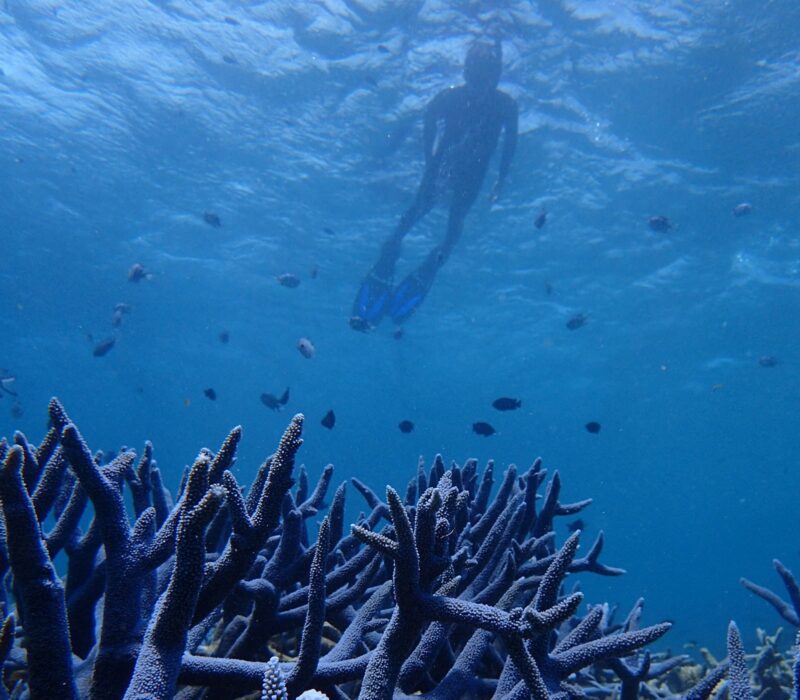February 1, 2023
Heron Island Reef, Australia (Mike Henley)
Oceans cover 70% of the planet, produce 50% of the world’s oxygen, and their algae and seaweed absorb 25% of global carbon emissions. Within oceans, coral reefs are one of the most important ecosystems, as they nurture more than a quarter of all marine life and protect shores from storms. As global temperatures rise, coral cannot adapt to the warming oceans, and coral species are in steep decline.
The Smithsonian’s National Zoo & Conservation Biology Institute plays a leading role in the research and conservation of coral systems. Its Reef Recovery Initiative (RRI), led by Senior Research Scientist Dr. Mary Hagedorn, is an ocean-conservation program made up of a global network of scientists. Since 2016, the William H. Donner Foundation has contributed close to $400,000 to the Reef Recovery Initiative, supporting post-doctoral fellowships in two key research areas: coral bleaching and cryopreservation.
Research breakthroughs enable conservationists to generate new coral from preserved cells, strengthening existing populations and adding genetic diversity.
Coral bleaching, now reported in every major reef system around the world, occurs when corals are stressed and expel a critical organism – an algal symbiont – from their tissue. In healthy coral, this symbiont transforms sunlight into nutrients (and gives coral its vibrant colors). Unless stressed coral can reabsorb these symbionts within approximately ten weeks, they die. Preserving these biodiverse algal symbionts is a critical objective in coral conservation, and one that’s being pursued by post-doctoral fellow Dr. Jessica Bouwmeester, thanks to support from the foundation.
Since 2021, the William H. Donner Foundation has also supported Dr. Hagedorn’s team in the innovative field of cryopreservation.

Heron Island Reef, Australia (Mike Henley)
Cryopreservation stores marine species cells frozen, but alive, in liquid nitrogen. In this state, they are safe for hundreds of years, with the potential to be used to generate new corals and to strengthen small populations by adding genetic diversity. Current funding supports post-doctoral fellow Dr. Mike Henley’s research into the physiology of coral reproduction, pioneering low-cost, high-impact reproductive technology to offset the effects of climate change on reefs. This funding also enables Dr. Hagedorn to train Dr. Henley and other coral conservationists in cutting-edge cryopreservation techniques, ensuring critical knowledge and methods are passed to the next generation of coral researchers.